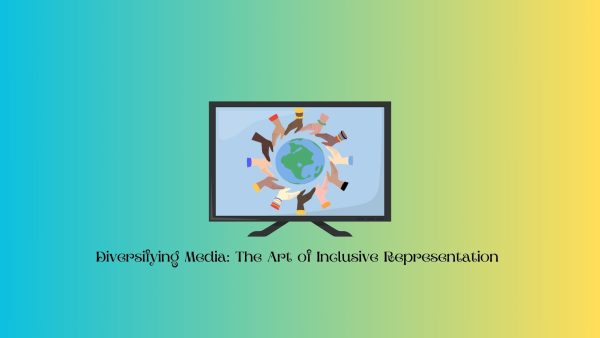Is the Advent of Social Media Creating a Generation of Narcissists?
A group of teens take a “selfie” at the Metropolitan Museum of Art in New York City.
October 15, 2017
Social media has provided an easy and immediate vehicle for self-promotion. Therefore, it has become the perfect platform to nurture narcissistic tendencies and egocentrism. With the immense popularity of these various social networking sites, a generation of youths is becoming rapidly self-obsessed.
An atmosphere inundated with social media and public images of popular peers and celebrities fuel the need for many youths to emulate what they perceive to be an ideal life or look. Teens across the globe, including Jayden Hawley (10), express their feelings, “Social media stars like Jake Paul live the perfect lives. Us teenagers all kind of want to be like them.” Traditional role models of parents, teachers, and firemen are replaced by social media stars such as Youtubers or Instagram models, who promote superficial ideals and lives. They themselves embody false images of perfection and exploit viewers’ feelings of inadequacy through sublime messages of, “Don’t you want to be me?”
Instagram and Snapchat are among various social media sites that have influenced people’s perceptions of self-worth and social likability. Many young people have grown to become obsessed with taking pictures of themselves and posting them. These images or “selfies” are posted to elicit views, comments, and “Likes” by internet friends and followers. Users strive to highlight their lives by selectively sharing information that will promote their image. Hence, social media has provided the ultimate “breeding ground for narcissists” (ScienceDaily).
Modeling the superficial ideals of pop culture icons via social networking undermines the virtues of empathy and consideration for others. Millennials are “more likely to value money, image and fame over community, affiliation and self-acceptance” because of social media (Psychology Today). The wasted time spent perfecting one’s image on these sites rather than serving the community and spending time with loved ones further illustrates this generation’s obsession with self-importance.
The goals of social networking sites are purely about self-promotion and disseminating self-information. Thus, social media further develops what may already be predisposed narcissistic tendencies. A competition for more “likes” and “followers” feeds one’s ego while tearing down another’s confidence. This pursuit to outdo one another’s profile and feed on these various sites has caused people to become increasingly self-involved.
Not only has social media created an outlet for people to flaunt their beauty or show how great their lives are, it has also generated a society where many are obsessed with their online numbers and personal importance. People have placed their need to look important and gain attention above kindness for others. Studies show that when students were asked to take The Narcissistic Personality Inventory Questionnaire and Interpersonal Reactivity Index to test their levels of narcissism and empathy that, “approximately 70 percent of students today score higher on narcissism and lower on empathy than did the average student thirty years ago” (Psychology Today).
Is social media to blame?
Through this increase in people with egocentric qualities in modern society, it is evident that a generation of narcissists has been created. Social media encourages those predisposed to narcissism and at the same time has created a trend in popular culture to become less empathetic and more selfish.























